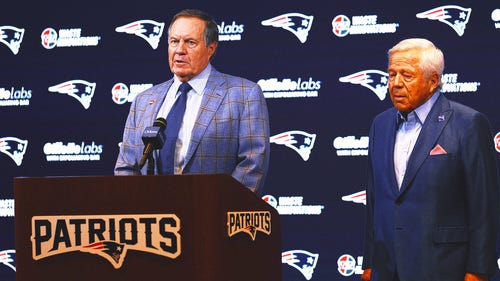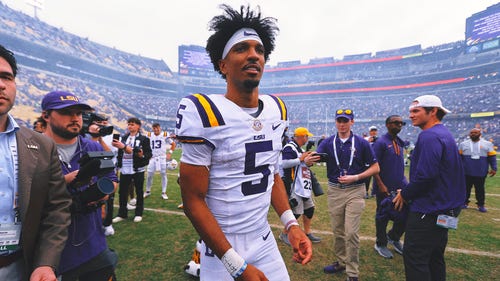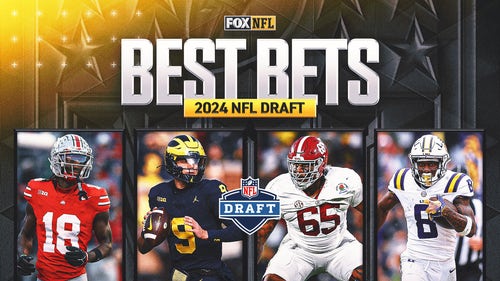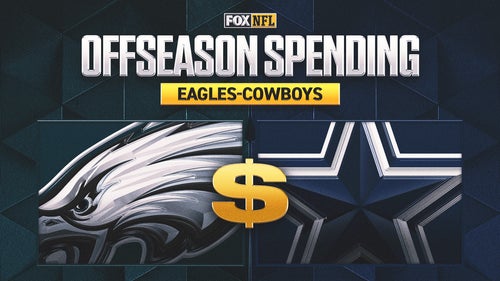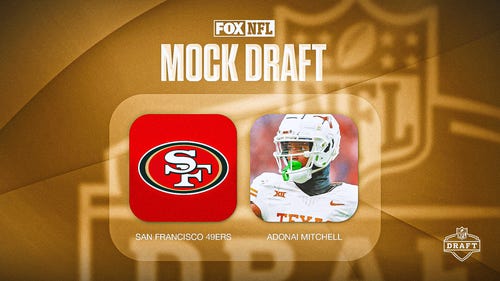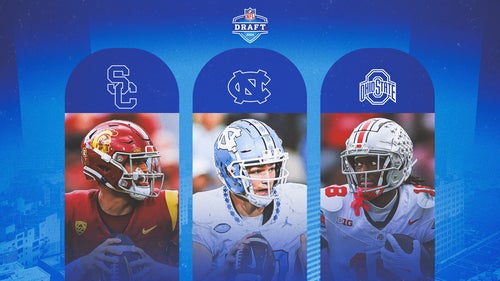
Why do athletes blow their millions?
ESPN’s Billy Corben-directed 30-for-30 documentary “Broke” captured sports fans' attention the way “Scared Straight” did 34 years ago.
Are you too young to recall “Scared Straight”?
A handful of juvenile troublemakers visited Rahway State Prison. They were placed in a room filled with hardened inmates who cussed, screamed, threatened and described the horrors of incarceration in graphic, four-letter-word detail. The three-hour conversation was reduced to a 52-minute documentary.
I remember watching the show late at night with my brother, stepsister and stepbrother. We were between the ages of 10 and 17. We were scared. We talked about the show for days with all of our friends. Obviously this was long before the social-media era, long before cell phones were common. But somehow everyone — and I mean everyone — watched “Scared Straight.”
It won the Academy Award for best documentary in 1978. It was hailed as revolutionary TV. Most people, in the moment, thought it was an effective tool in convincing troubled youth into making better choices. I’ve never forgotten “Scared Straight.”
Many of you will never forget “Broke.” It was Corben’s simple attempt at scaring athletes into making better financial decisions. For years we’ve read the stories about young professional athletes squandering millions of dollars and filing for bankruptcy shortly after their careers end. Corben put all the stories in one place and let the athletes speak their own stories in front of a camera and a microphone. The presentation was uncreative but powerful.
Sports fans, athletes and executives connected to the sports world responded to the show organically on Twitter. It was a big town hall meeting about an obvious topic. It was the new millennium's “Scared Straight.”
What will be the result?
I’m reluctant to call “Scared Straight” a failure. The forces — drug war and politically driven, get-tough sentencing guidelines — that have powered America’s astronomical, world-leading, shameful incarceration rate undermined any chance of “Scared Straight” having any legitimate cultural impact.
But “Scared Straight” did work. It got our attention. It caused young people to focus on the consequences of their rebellious misbehavior. What “Scared Straight” did not do is provoke our society to double-back down on providing opportunities to troubled youths.
Opportunity is a better long-term motivator than fear. Education is a better healer of dysfunction than fear. The difficult job of teaching a man to fish cures starvation more effectively than explaining the perils of starvation.
We need to teach athletes to fish, and we need to teach them in a language and a curriculum they are passionate about. Too many people think education is memorization. True education is about learning the ability to think critically. Knowing the exact dates of the start and end of the Civil War will serve you well on "Jeopardy." But it will not teach you how to think critically, how to deduce. Many so-called educated people simply cannot think. They can’t apply all the bits of information they’ve memorized to life skills.
You can learn damn near everything you need to know about life through the study of sports. It’s all there. By understanding the history of Major League Baseball or the NFL, you can learn the concepts of America’s system of governance (democracy) and system of economics (capitalism).
Much of my column philosophy is based on the premise that I can use the sports world to explain the rest of the world. Last week I wrote a column comparing the NFL’s replacement referee disaster to the 2008 financial collapse.
There is no better place to learn about diverse human interaction than the sports world. Major League Baseball is the United Nations.
You might think a finance class would solve most athletes’ financial woes. Nope. They have to first develop the critical-thinking ability to understand the value in a finance class. As a society we can do a much better job of making education inviting to athletes by teaching them in areas of their passions. The History of the NBA sounds like a course for dummies. It doesn’t have to be if taught properly.
I know many of you are laughing. You think I’m suggesting the pampering of athletes. I’m not. Whatever level of intellect I have — and I admit it may not be much — was cultivated by my intense passion for sports and wanting to understand the sports world. No teacher asked me to read Sports Illustrated as a kid. I studied the sports world on my own time, and I put more time into that than my regular school work. I regret that now. And I’ve spent a significant portion of my adult life studying things I could’ve learned in high school. But my advanced degree in sports has helped me easily understand the things I’m learning now.
I’ve recently read several books on Abraham Lincoln and the Civil War. General McClellan’s fear of engagement, unwillingness to exploit his superior numbers reminded me of a too-conservative football coach (Marty Schottenheimer). General Robert E. Lee made me think of Sean Payton, a fearless gambler.
My degree in sports taught me to think critically, taught me to read people and situations. If athletes understood their industry on a much deeper level, they would not be as prone to make the financial and personal mistakes they routinely make. Colleges and universities across the country are making millions of dollars off the labor of these athletes. Those institutions of education also have an obligation to prepare these young people for life after school.
Every athlete, including those of us who never got a whiff of a pro contract, could benefit from being taught the world through the prism of sports, our passion.






































































































































